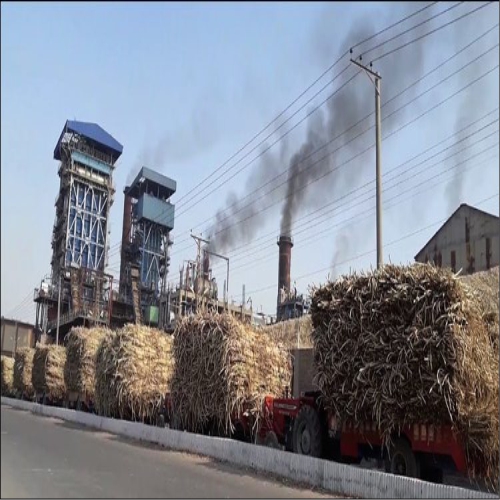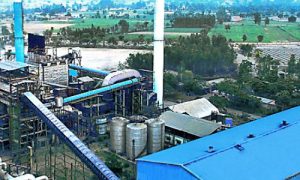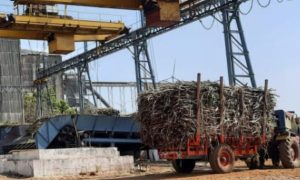Bangladesh : No progress in upgrading six closed sugar mills as prices soar

The fate of six closed state-owned sugar mills remains uncertain, with no progress since their 2020 shutdown. A recent agreement with S Alam Group for reopening was canceled due to irregularities. Foreign investors proposed a Tk 5,000 crore investment in 2019 but have had limited engagement with the government, leaving the mills’ future in limbo.
The fate of six state-owned sugar mills remains uncertain as there has been no upgrading progress since those were closed three and a half years ago, contributing to soaring prices of the sweetener in the local market.
Lately, the interim government cancelled a production resumption deal of the mills with the S Alam Group, citing alleged irregularities. The deal, signed in July this year, involved a feasibility study for boosting local sugar production.
For the reopening of the mills, there is now a 2019-agreement that involves a foreign joint venture.
However, the foreign investors — Sutech Engineering Co of Thailand, Sharkara International of the UAE and Sojitz Machinery Corporation of Japan — have had little contact with the Sugar and Food Corporation, according to its secretary Md Anowar Kabir. Officials said Sutech’s proposal was attractive and could make the closed sugar mills profitable, but alleged that the previous government favoured working with the S Alam Group and signed an agreement to that effect
“If they are truly interested in investing, they should approach the government now,” he said.
In 2019, the Sugar and Food Corporation signed a memorandum of understanding (MoU) with these investors to establish modern, energy-efficient sugarcane, liquor and beer industries in Bangladesh.
In 2020, Thai Sutech conducted a feasibility study and submitted its report. The companies then proposed a Tk 5,000 crore investment under a sovereign guarantee from the Bangladesh government.
However, the government decided to implement the upgrade plan through a government-to-government (G2G) arrangement.
The Japan Bank for International Cooperation and the Exim Bank of Thailand were expected to finance the project.
Meanwhile, the government shut down production at the six mills — Pabna Sugar Mills, Shyampur Sugar Mills in Rangpur, Panchagarh Sugar Mills, Setabganj Sugar Mills in Dinajpur, Rangpur Sugar Mills, and Kushtia Sugar Mills — in December 2020.
Therefore, the Ministry of Industries was progressing the plan to upgrade the closed mills with the Thai and Japanese investors, but influential figures within the government were keen to award the contract to the S Alam Group, according to sources at the Sugar and Food Corporation.
Accordingly, a memorandum of understanding (MoU) was signed between the corporation and S Alam in July to conduct a feasibility study. However, the agreement was cancelled due to various irregularities, as per the corporation officials.
Anowar Kabir, secretary to the Sugar and Food Corporation, said Sutech’s proposal was highly attractive and could make the closed sugar mills profitable.
However, corporation officials said the previous government favoured working with the S Alam Group for sugar industry development and signed an agreement to that effect.
Kabir said since the previous government did not finalise the sovereign guarantee issue, the interim government cannot confirm a decision on the matter.
Sovereign guarantees and government-to-government (G2G) arrangements are separate mechanisms for facilitating foreign investment. A sovereign guarantee is a government pledge to guarantee the debt or obligations of a private entity or state-owned enterprise to a foreign investor.
In contrast, a G2G agreement is a direct agreement between two governments for a loan or investment. In this case, the investing country’s government provides funds directly to the recipient country’s government.
“We are eager to invest. If the government is interested, we can resume the process,” Md Emdad Hossain, a local representative of the foreign investors, told The Daily Star.
He added that there was no need to sign a new agreement; a letter from the Sugar and Food Corporation would suffice.
According to Hossain, the investor would introduce high-yield sugarcane in the catchment areas of the mills and implement modern technologies to ensure their commercial viability.
The companies will produce premium quality alcohol used in perfumes and pharmaceuticals, Hossain said, adding that the by-products of the mills would increase their revenue.
He said commercial production would take around 28 months to begin, including sugarcane, cultivation time.
Referring to the Sutech assessment, he said they would be able to produce sugar at Tk 60 per kilogramme (kg), compared to the current price of refined sugar at Tk 140 per kg.
He added that they would be able to produce 8 lakh tonnes of brown sugar per year, while the country’s demand exceeds 20 lakh tonnes.
Initially, the foreign companies will reopen three sugar factories with the capacity to process 14,000 tonnes of sugarcane per day.
They will introduce high-quality sugarcanes to make extra-neutral alcohol (ENA) as a by-product for export. This colourless alcohol has a neutral smell and taste and is generally distilled from molasses.
The ENA is the primary raw material for making alcoholic beverages such as whiskey, vodka, gin and Liqueurs.
















